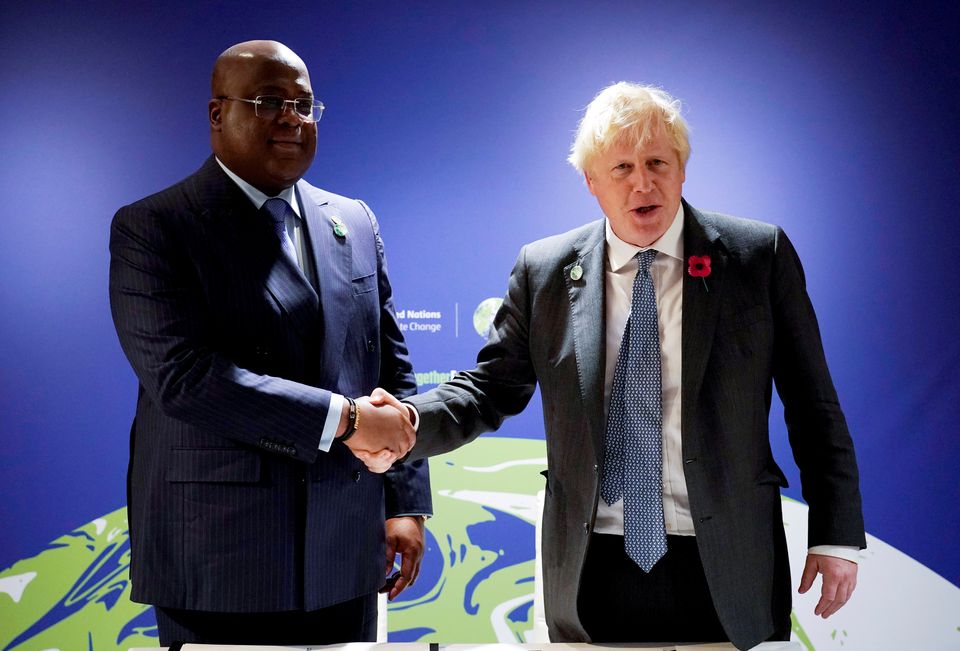The 2021 UN-organized Climate Change Conference or COP26 was held from October 31 to November 13 in Glasgow, United Kingdom.
As a region most vulnerable to the effects of climate change, coverage on Africa’s agenda at COP26 focused on climate finance and justice. Going into COP26, the African Group of Negotiator’s message to developed nations was clear: climate responsibility must be the foundation of global climate agreements.
The climate justice perspective was central to Africa’s role at COP26. The dominant narrative seen is that richer nations responsible for emissions driving the climate crisis have the duty to rapidly scale down their unsustainable lifestyles. Despite containing about 15% of the world population, the African continent contributes 3.8% to global warming.
As a consequence, the climate crisis may wipe out up to 15% of the continent’s GDP by 2030.
Historical polluters must also pay for the costs and damages the climate crisis will inflict on Global South nations. Examples include payments to fund humanitarian assistance for climate impacts and rebuilding critical infrastructure.
So, What Actually Happened?
Media outlets rightfully framed COP26 as a failure for Africa’s agenda.
Developed nations refused to take responsibility for any costs and damages associated with climate change. The issue of climate reparations is far from resolved. Developed nations hold a significant climate debt towards the African continent (and Global South countries), as they will suffer the most having contributed the least to the crisis.
Developing countries tabled a proposal to create the Glasgow Loss and Damage Facility, which would direct payments to developing nations to address climate-related disasters (e.g., extreme weather events, food insecurity, loss of life, loss of livelihood). Climate change is estimated to cost the developing world up to $580 billion annually at the end of the decade, and over $1 trillion up to 2050. But this was not included in the final agreement. The United States, the EU, and other wealthier countries blocked this proposal, motivated by the fear it would open them up to compensation claims.
Developed nations shirking their true financial responsibilities agreed to provide funding that would offer technical assistance to developing nations for dealing with climate risks instead (to the disappointment of African leaders). Increased climate finance of $500 billion by 2025 was promised, but ultimately less than half of the $1.3 trillion requested by African negotiators.
So far developed nations fall short of their promises to mobilize $100 billion of climate finance per year by 2020. In addition, climate finance pledges include a mix of concessional loans and grants, with the expectation for developing countries to pay richer nations back — the neo-colonial debt trap.
Coverage of Africa at COP26 illustrated how developed nations won’t acknowledge the historical injustice of large-scale wealth extraction which built their own societies (colonialism). COP26 was ultimately a failure for Africa and indigenous peoples around the world because, despite COP26 climate pledges, the planet is still heading for 2.4C warming.



True Climate Justice is Difficult
Addressing Africa’s concerns largely has to do with climate reparations — taking responsibility would open them up to potential legal or compensation claims. Centering Africa’s climate issues would mean developed nations would have to contend with the fact that they need to drastically change the way they do business. This means a reversal of lifestyles, productions, and consumption for true climate justice to take place.
This is not a very profitable option for Global North countries, as scaling down unsustainable production and consumption is fundamentally against the interests of their multinational corporations. Addressing Africa’s concerns means Rich Nations would have to abandon their delusion of endless green growth. As a way out, richer countries can keep producing at the same levels, but in a more sustainable way, even with finite planetary resources. This also means they would have to commit a lot more money.
The African continent was essentially sidelined due to colonial greed: the desire for profit over the planet and people. Powerful nations are too busy focusing on how they can maintain the status quo with a green face (e.g. extracting mineral resources from Global South nations and indigenous communities for their green technologies). Unless the current global economic order of their extractive relationship with developing countries is challenged, climate change conferences will continue to ignore solutions that maximize the benefits for the populations most affected by the climate crisis.